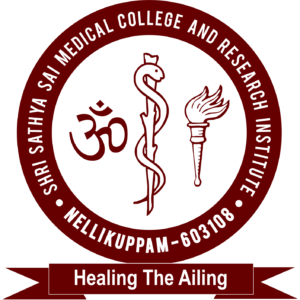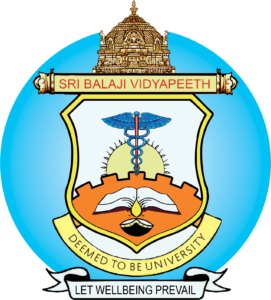STUDENTS IN NEED OF ADDITIONAL CURRICULAR SUPPORT (SNACS)
STANDARD OPERATING PROCEDURES:
- Special classes for slow learners being conducted for I MBBS Students called as SNACS (Students Needing Additional Curricular Support)
- SNACS classes are being held every year since 2008 till date.
- SNACS Classes start after I Semester (After 2 Internal Assessment Examinations)
- Slow learners are identified based on the below criteria:
- Borderline Internal Assessment with
- The Departments of Anatomy, Physiology and Biochemistry prepares the list of students based on the above criteria.
- The classes are held in three modules on a weekly basis for each department, so that each department will be handling SNACS sessions for 3 weeks (3modules for 3 weeks per department)
- Total duration of SNACS classes is 9 weeks
- Each week the classes are divided in the following manner:
- Monday & Wednesday – Discussion on LAQs, SAQs, VSAQs of all the forthcoming Internal exams topics
- Tuesday & Thursday – Self study, Assignments and clarification of doubts, Viva –Voce training
- Friday – Module exam
- Saturday – Discussion of the module exam questions, distribution of exam papers & Counseling
- Everyday classes are held between 4.30 pm to 6 pm
- The SNACS schedule for all the weeks shared with the students before the commencement of the classes.
- The classes are handled by Senior and Junior Faculty, residing in-campus and outside campus as well.
- The parents are periodically updated about the Student’s performance through E-mails, Telephonic conversations (by Mentors), Marks reports through couriers and interactions during Parent Teachers meetings.
- The Departments have data on progression in the Internal marks as well as improvement in the pass percentage in the University Examinations due to the conduction of SNACS classes.
Special programs for advanced learners and slow learners Para Clinial & Clinical Departments
During lectures the faculties have to deal with different types of students; some are very fast learners and some are quite weak who learn very slowly. Therefore it is mandatory to identify the abilities of the students in the class. Based on this observation, the students who can learn fast students need only guidance and those who are slow at learning need hard work and regular attention.
SLOW LEARNERS
Identification of Slow learners:
It shall be done based on the
- Day-to-day observation of students during lecture by the faculty
- low self-esteem
- poor concentration skills
- inattention in class,
- Delay in submitting assignments
- Theory and Practical attendance
- Based on Assessment of student’s performance (midterm/end term assessments) in specific subject: all students who scored less than 50% in the 1 st IA will be considered as slow learners
- Opinion of parents about their wards progress and difficulties in learning various subjects his language difficulties, emotional problems, illness, injuries and physical defects and problems
- Opinion from mentors
- Day-to-day observation of students during lecture by the faculty
Activities for the slow learners
- The Institute practices a robust student academic counselling process.
- During the course of study, the group of students are assigned to a faculty for mentoring. The mentors monitor academic performance and interact frequently to understand and assist any student with issues that affect their ability to learn or impede their academic success. Mentors communicate regularly with the parents as well
- The institute has a system to communicate performance and attendance of students to parents regularly
- Departments conduct extra/remedial classes to clarify doubts. Critical topics are re- explained for better understanding by the students.
- Slow learners are given regular additional class tests in order to improve their performance in the university exam
- Concerned Departmental faculty members revise the topics as per the students requisition and provide question banks (important questions) and discuss the way of presenting the answers in the exam to score marks.
SNACS & SNECS Report 2019-2020



